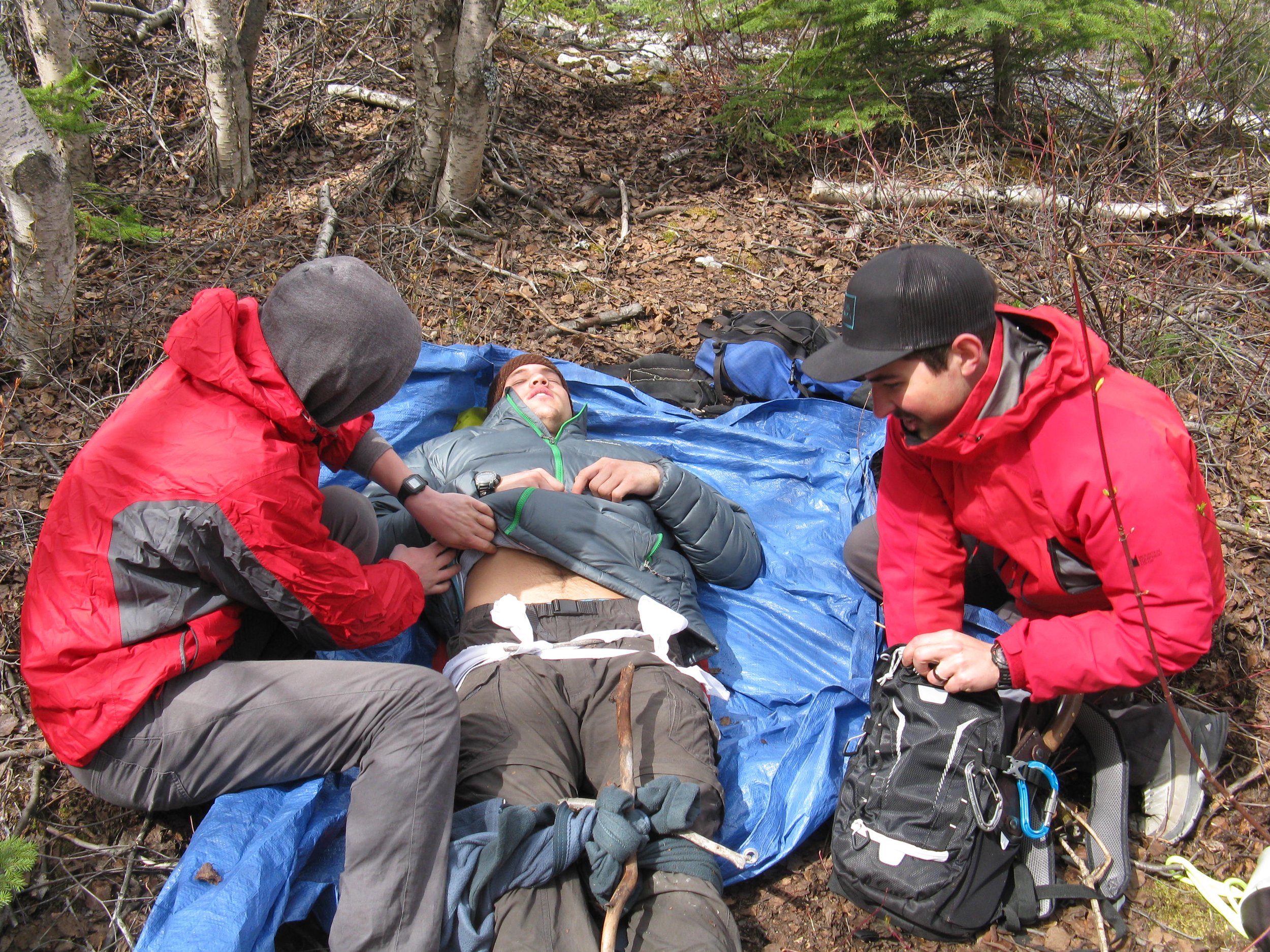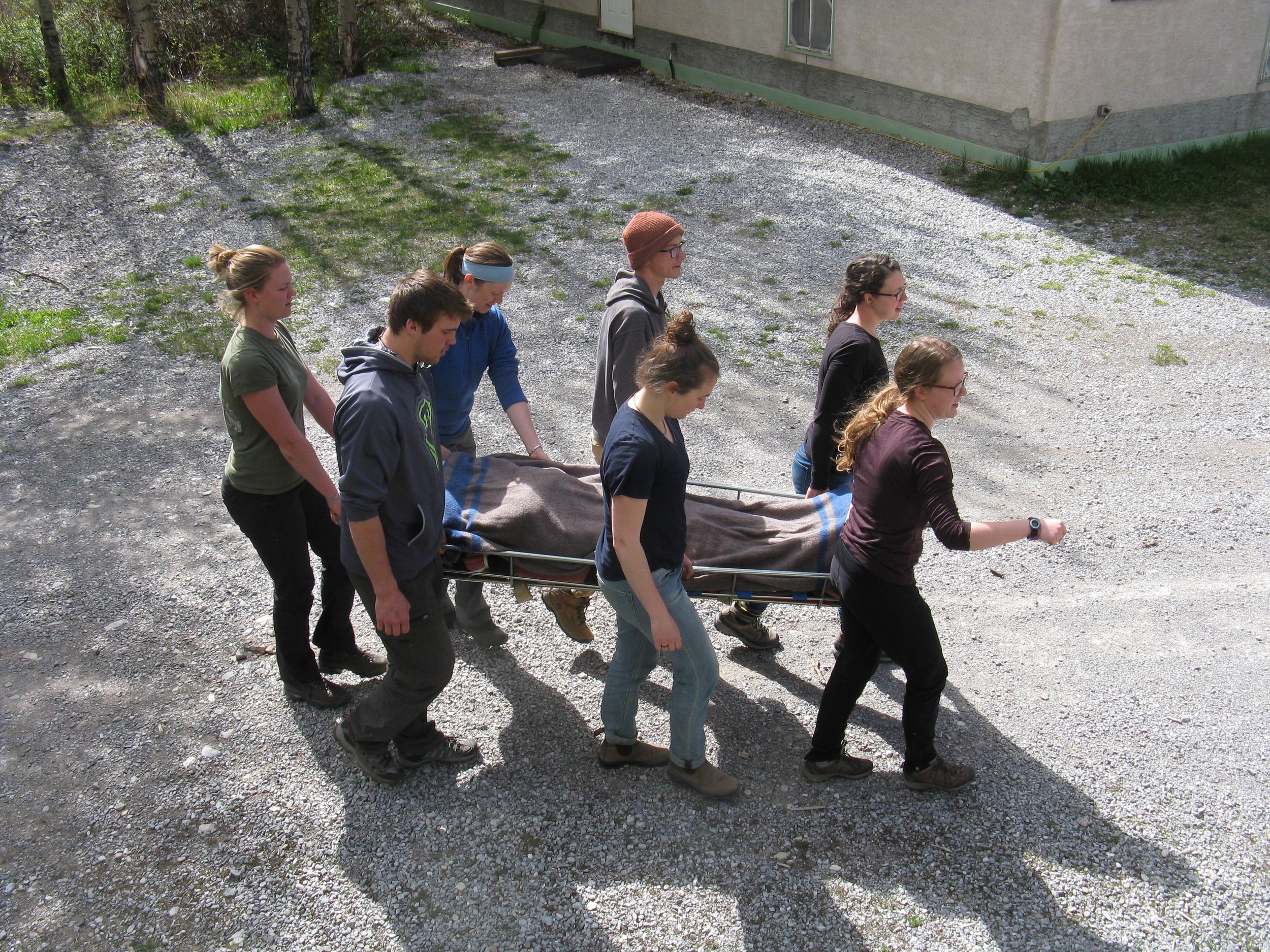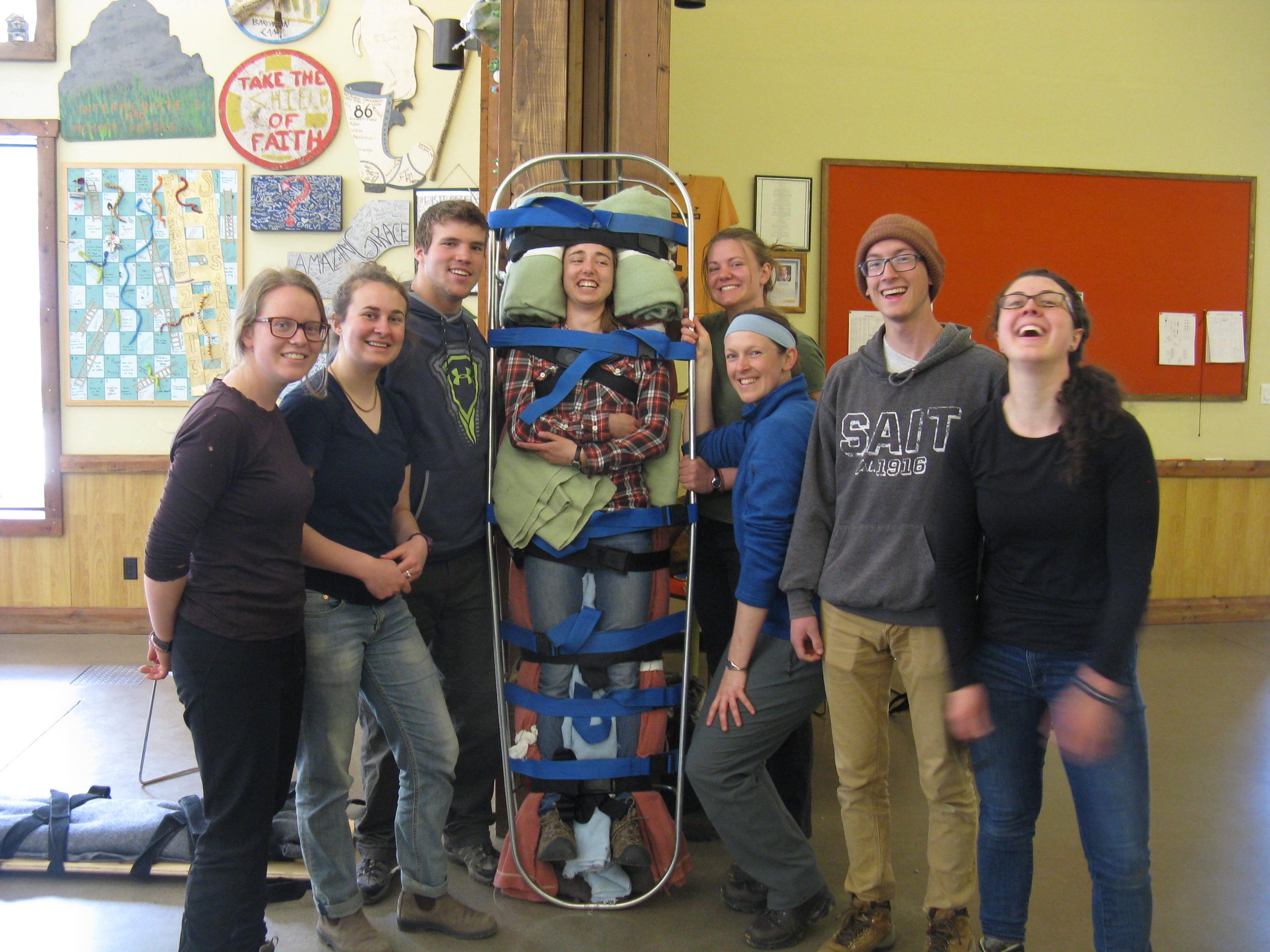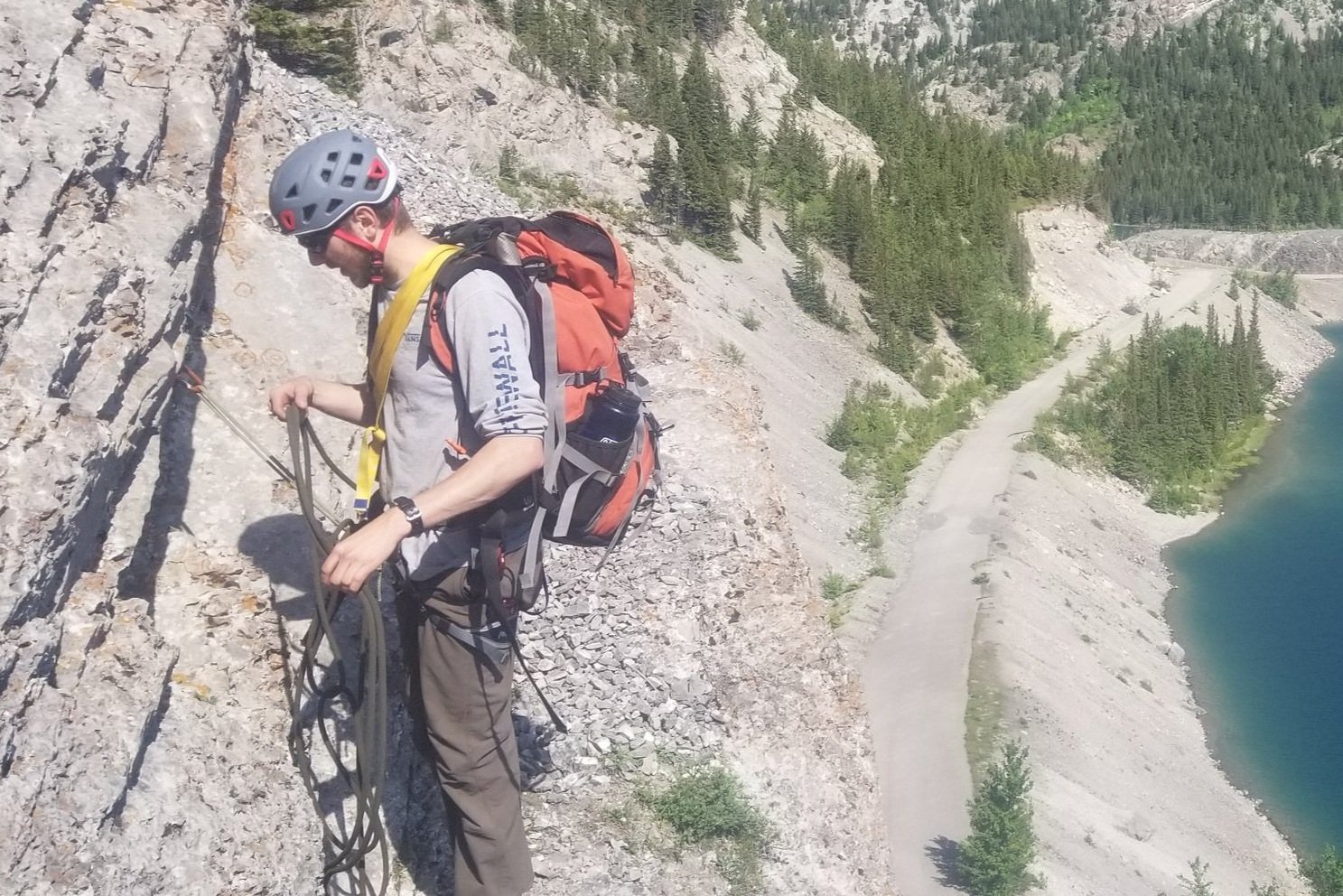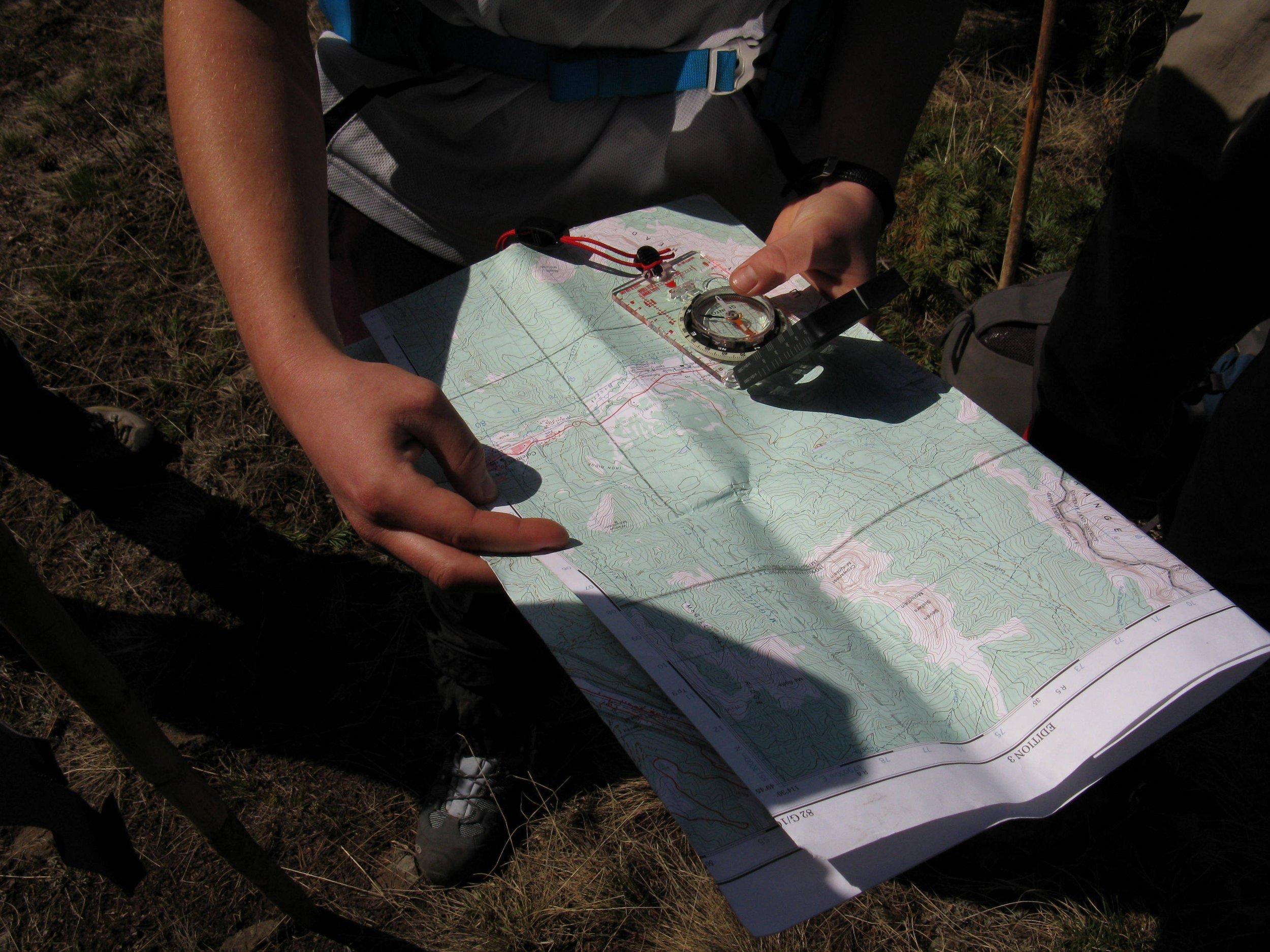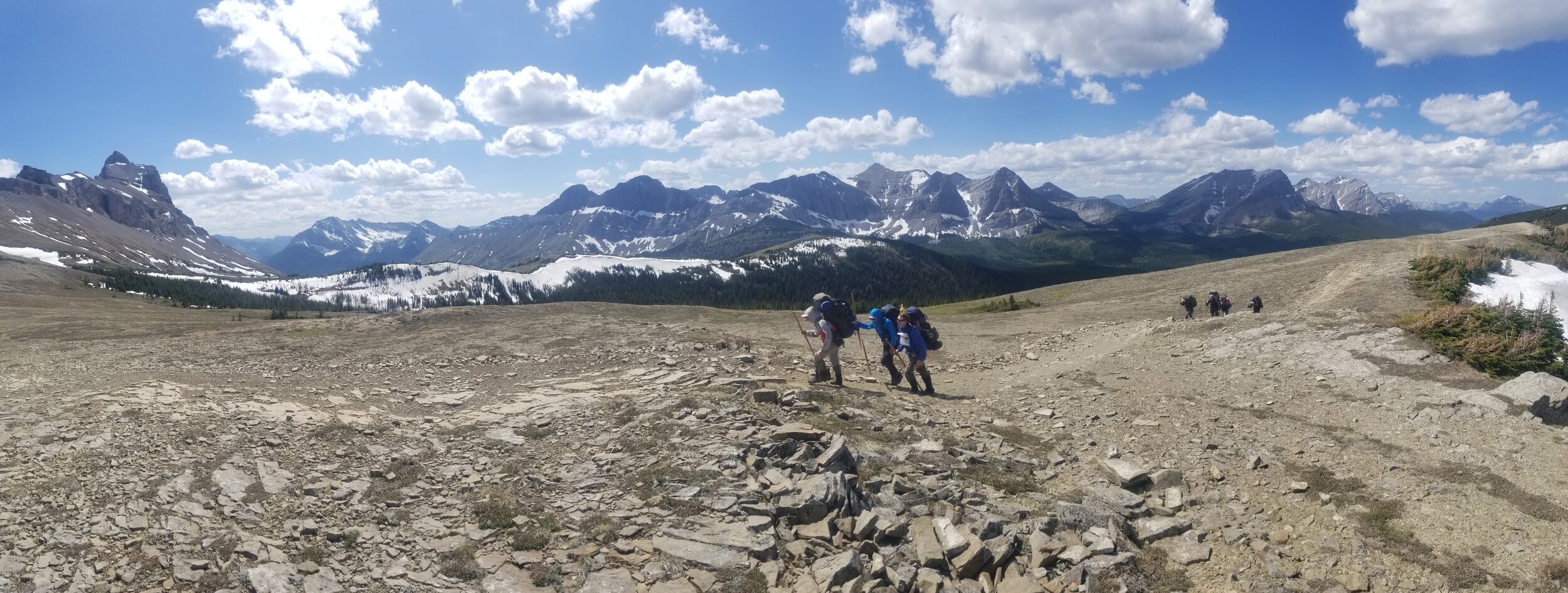
Crowsnest Outdoor Leadership Training School (COLTS) is an accelerated leadership development program that aims to create Christ-centered leaders in the outdoor industry. This is accomplished through purposed instruction and in-depth training, then culminated with 2 months of experiential practicums leading out-trips during our summer camp programs.
Program Objectives
Leadership Development: Develop leaders who are learning participants in leadership with a special emphasis on the following three leadership styles:
Spiritual Leadership – blending the natural and spiritual qualities of leadership to influence others so that they may accomplish God’s purposes.
Outdoor Leadership – strategically utilizing wilderness areas to bring together outdoor training and leadership principles.
Servant Leadership – following Christ’s example of leading by means of servanthood.
Wilderness Guide Training: Equip participants via intensive training designed to provide them with knowledge and skills in seven basic areas pertaining to leading groups in wilderness settings:
Wilderness Ministry – methods by which to minister to the “whole person” (i.e. physically, mentally, emotionally, socially, and spiritually), but with a special emphasis on how to minister in a spiritual sense.
Group Management and Leadership – the theoretical, communicative, and practical aspects of leading and managing groups in a wilderness setting and remote context—focusing on sound decision making while leading a group.
Outdoor Skills – become competent in a wide variety of skills necessary to travel and camp in the backcountry.
Emergency Response – prepare participants to critically think, communicate, and respond effectively and thoroughly in emergency situations that may arise while leading groups in the wilderness.
Risk Management – identify, assess, and manage risk that is inherent with outdoor pursuits, providing appropriate supervision and direction in programmed activities.
Environmental Stewardship – foster a biblically-based paradigm that acknowledges God as the maker and sustainer of all creation. (Romans 1:20)
Administration – the imperative aspects of planning, preparation, and organization of outdoor-based programs. (Proverbs 16:9)
Instructive Teaching: As graduates of COLTS, participants are expected to be leaders who teach and instruct the summer staff and campers at CLBC in the following six areas:
Whole Person – minister to the whole person in order to create enjoyable, learning, and challenging experiences for camp staff and campers.
Outdoor Skills – teach wilderness skills to camp staff and campers with the intention of increasing their ability to effectively participate in outdoor programming.
Wilderness Ministry – influence followers in devotional and spiritual insight towards greater effectiveness in an outdoor setting while applying both a biblical and theoretical knowledge in both a supervised and unsupervised nature.
Leadership – instruct and demonstrate effective leadership approaches to guiding people in God’s creation.
Discipleship – adhere to and teach CLBC’s missional approach to camp ministry and community.
Environmental Stewardship – foster a biblically-based paradigm that acknowledges God as the maker and sustainer of all creation. (Romans (1:20)
Core Competencies
The above objectives are designed to highlight the desired results of COLTS, whereas the core competencies are used throughout the program as a guide; it is through the following core competencies the objectives are attained. The core competencies are the pathway and the objectives are the destination. They are as follows:
Leadership: The practice of influencing others to pursue a common goal, with a special emphasis on spiritual leadership, outdoor leadership, and servant leadership.
Christlikeness: Resembling or showing the character and heart of Jesus Christ.
Group Observation and Management: Assessing and communicating with the group and responding to their needs in a caring and principled manner.
Critical Thinking and Problem Solving: Using information, judgement, and decisions to arrive at a solution.
Outdoor Skill Mastery: Comprehensive knowledge and proficiency in a particular outdoor activity.
-

Highlights
Two months training + two months leading trips
Over 23 days of backpacking + multiple summer out-trips you lead
Access to pro deals after completion
-

Certificates
COLTS Graduate Certificate
Wilderness First Aid (WFA)
Outdoor Council of Canada (OCC)
Leave No Trace (LNT)
Bear Aware
Paddle Canada (optional)
-

Location
COLTS is hosted at Crowsnest Lake Bible Camp located in the Crowsnest Pass, AB - in the heart of the Canadian Rocky Mountains.
On highway 3, three hours southwest of Calgary, AB, or 1.5 hours east of Cranbrook, BC.
-

Prerequisites
1) Minimum 19 years of age by June that year.
2) Growing and mature Christian with a strong desire to minister to people through the wilderness.
3) Standard First Aid (SFA) - Taken within 1 year of the start of COLTS - can be obtained after acceptance.
-

Dates
2024, April 27 - August 31
2025, April 26 - August 31
2026, April 27 - August 30
-

Fees
-

Activities
Backpacking, Day-hiking, Caving, Rock Climbing, Canoeing, and Archery
-

Apply
Click here
Why is COLTS unique?
Our model for leadership is Christ, our theory of leadership is based on Scripture. Although other theories of leadership help us understand leading principles, God's ideas about leadership are foundational to our program. It is God, not us, who makes the kind of leaders we want to see emerging today. This sets us apart from secular leadership training programs.
We approach the wilderness as a ministry environment. That means we recognise its value to the whole person as testifying to God's reality and character. This sets us apart from training for leadership in other environments, e.g. church leadership or corporate leadership.
We aim to develop leaders who are able to serve those they lead. Another way to look at it is that we are trying not just to serve our COLTS participants but are equipping them to serve others. This sets us apart from experiential and outdoor skills programs.
The COLTS Model
An anticipated and desired result of COLTS is that individuals with an interest in the outdoors can learn, practice, and develop personal leadership skills to the point where they are demonstrably qualified to lead outdoor programs. At the same time, they develop a unique understanding of their personal limitations and are encouraged to develop personal methods of dealing with those limitations.
The emphasis within the program is on experiential learning, where the participants are taught concepts and theory and then allowed to experiment with implementation of those concepts, culminated with constructive feedback and guided encouragements. COLTS participants are given the opportunity to first implement the concepts within a peer group and under close supervision, and then progressively given further opportunities to implement with less and less supervision. Which in turn, carefully exposes them to progressively greater responsibility.
The effect of such training is to give the greatest amount of personal competence within a short time frame. A large reason for this, is that the training becomes, by default, tailored to the specific needs of each participant. Basic and general concepts are taught to everyone together, but in course of the participants actually attempting to implement those concepts, feedback and further instruction is given--responding to their specific needs. This is what we call the ‘experiential model’. In using this model as the basis of our programming, we may not give quite as broad a theoretical base as some other methods, but the concepts, skills, and training given may be more practical, and may contribute towards the development of more “able” leaders.
It is our desire to use this learning model as the basis of the development of COLTS. In so doing, we feel that we will offer a practical sort of leadership development which lends itself to many specific applications and not just the wilderness setting. Wilderness skills will be taught, and taught well, but the leadership development is applicable to any endeavour the student may choose to pursue in the future.
This is our model: to create Christ-centered servant leaders for the outdoors.
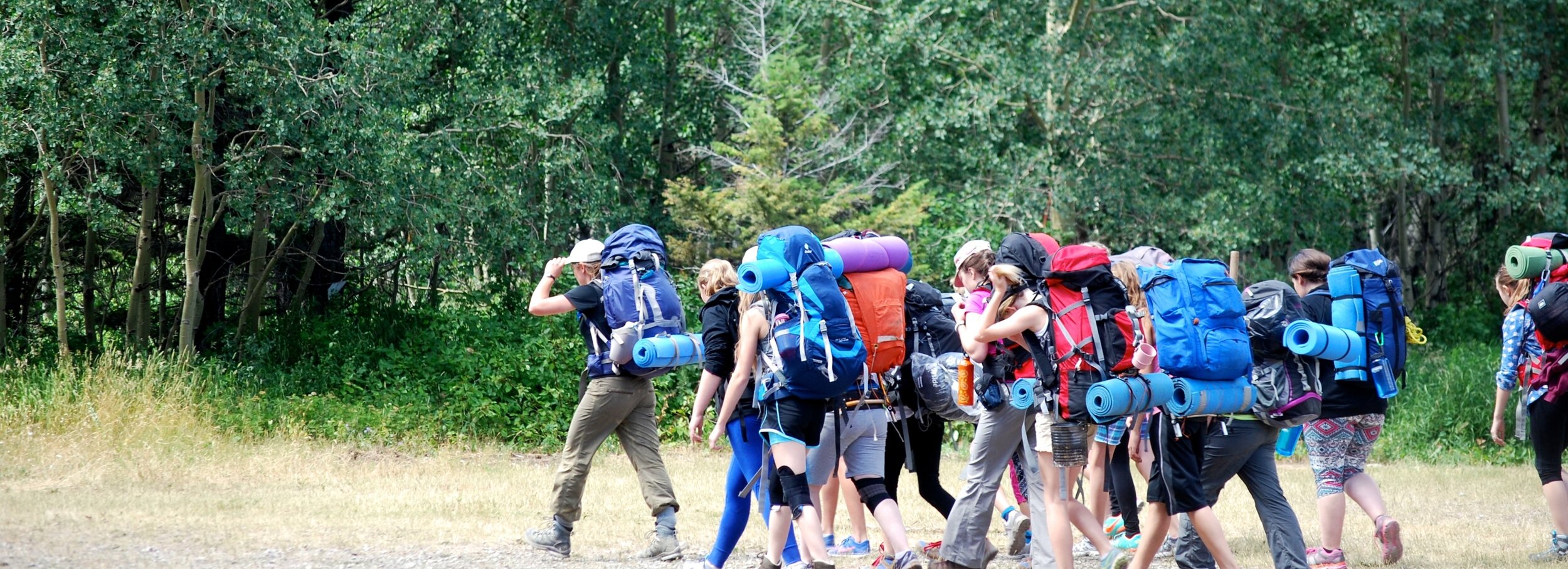
Course Outline
There are four stages of COLTS. The training at the beginning in April-June, then two small camp-wide training events in June, then the summer programs in July and August.
1. Outdoor Leadership Training (7-8 weeks; April, May, June).
This stage includes many out-trips mixed with sessions and days off in between. For an example calendar of what these two months look like, see Sample Schedule.
Sessions:
Legalities and Risk Management - 4 hour session, practiced throughout the program
Safety and Emergency Response - 7 hour session, practiced throughout the program
Wilderness First Aid (WFA) Bridge Course - 40 hour course
WFA Extracurricular Practice & Technique - 30 hours training, practiced throughout the program
Leadership Theory - 4 hour session, development throughout the program
Navigation and Orienteering - 12 hours training, practiced throughout the program
Trip Planning - 3 hour session, practiced throughout the program
Outdoor Equipment Usage and Repair - 8 hours + weekend trip, practiced throughout the program
Meal Prep & Back Country Culinary Skills - 16 hours, practiced throughout the program
Out-trip Programming - 3 hour session, practiced throughout the program
Introduction to Weather - 3 hour session, practiced throughout the program
River Crossings - 4 hour session
Campcraft - 12 hours training, practice during training outtrips
Helicopter Safety - 1 hour session, practiced throughout the program
Improvised Carries - 3 hour session, practice during training outtrips
Nature/Plant Identification - 3 hour session, practiced throughout the program
Environmental Stewardship - 8 hour event, practiced throughout the program
Leave No Trace Principles - weekend trip, practiced throughout the program
Forms and Professional Documentation - 2 hour session, practiced throughout the program
Bear Awareness - 3 hour course, hopefully not practiced throughout the program
* Course Outline is subject to change.
Trips:
2 day out-trip - Instructors lead this as an exploratory out-trip designed to discuss all aspects of backpacking.
2 day out-trip - Students lead this out-trip.
3 day out-trip - Students lead this out-trip. This out-trip has a focus on steeper terrain and snow-based travel.
3-4 day gear trip - Instructors and students go to Calgary gear stores to conduct gear research and shop for personal items if needed. Store locations may include: MEC, Atmosphere, Map Town, Switching Gear, Bass Pro, Breathe Outdoors, Etc.
2 day out-trip - As part of an Instructor course with Leave No Trace Canada.
8 day out-trip - Students lead this out-trip.
3 day out-trip - Students lead a local youth group without instructors present.
2 day out-trip - Students partake in a solo out-trip. They are given UTM coordinates at the trailhead for where they are to sleep that their pickup the next day.
Multiple summer out-trips - See below.
2. Skills Week (1 week in June)
Participants will train to be instructors in one of the following: rock climbing, canoeing, or archery. The purpose of this week is to understand the safety, general skills, and how to lead that particular activity at CLBC. Participants do not need any pre-requisites for Canoeing or Archery. For rock climbing, though, participants must have experience top rope climbing and belaying outside (preferably on lead).
See the Skills Week webpage here.
3. Acclimatization Weekend (4 days in June)
This training will prepare both COLTS participants and other summer staff to work deliberately with campers. Example topics that may be covered are the mission and values of CLBC, its philosophy and purposes, staff orientation, evangelism, and camper discipline. In addition, there may be a one or two night out-trip and introductory sessions in climbing, canoeing, archery, etc. Both the activities and the out-trip will be led by COLTS participants.
See the Acclimatization Weekend webpage here.
4. Experiential Practicum (2 months; July, August)
Leading out-trips is the main role of COLTS participants in the summer months. This role is also where most of the learning is solidified from the training in the preceding months. COLTS participants will be involved in the summer programs in various capacities as determined by the camp leadership staff. Due to possible staff shortages, this may not always be out-trip directing.
A common summer schedule will have COLTS participants serving in the following ways:
Lead four to six out-trips of varying length - predominantly one to three nights each. Depending on the program, this could be leading a trip where the campers are solely going on an out-trip, so it would be up to eight campers and two out-trip directors. Or it could be an out-trip as a part of our Lake Site programs. This would mean there are one or two out-trip directors and two to four cabins of campers with their cabin leaders. It is our preferred practice to have two out-trip directors guiding each trip. When two are not available we ensure there is another adult staff at minimum on the trip.
Instruct our afternoon activities for 12-15 days per summer. This will often be leading the skill chosen for skills week (rock climbing, archery, or canoeing).
Be involved in the day-to-day programs (meals, chapel, chores, games, etc.)
COLTS participants are also expected to manage their own time with regard to planning and preparation for the out-trips they are leading. Substantial time is allotted to accommodate this that are separate from the days off.

Assignments
Practical
Out-trip Leadership:
Each student will be responsible for leading a portion of each training out-trip (this could be a few hours or multiple days). This gives students an environment to learn how to lead others with the capacity and allowance of making mistakes. Instructors take a 'back seat' approach and assist each student in their personal leadership growth.
First Aid/Emergency Simulations:
Throughout COLTS training, instructors will conduct a variety of first aid and emergency simulations to give students practice handling various situations. Each situation is followed by a group and a personalized debrief to aid in the students learning. Risk management, group management, decision making, and wilderness first aid techniques are emphasized during simulations.
Solo:
At the completion of COLTS training, each student goes on a one-night solo where they put their learned skills to practice without supervision. This includes navigation, travel to a certain location, camp set-up, and more. The solo is intended to give students time to reflect, and prove to themselves they now have the ability to use the wilderness unassisted.
Final Exam:
The final exam consists of written and practical portions. The written portion focuses on factual information learned during the training as well as situational questions. It is in short answer format. The practical portion changes depending on needs of the group and individuals. It can consist of simple campcraft testing (tarp set up, bear line set up, fire making), and/or First Aid simulations that test the decision making and judgment of the student.
External Courses:
Certificate-based courses are integrated into COLTS from other organizations (Outdoor Council of Canada, Leave No Trace, Paddle Canada, CNP Bear Smart, etc.). These courses include both written and practical examination.
Bible/Leadership Studies:
Periodically throughout the program, each student will be given 30-45 minutes to lead the rest of the group in a Bible or book study. Passages and books will vary each year.
Theoretical
Route-planning Assignment (4 hours):
This is an assignment that uses all three of the students’ supplied topographical maps to get them to practice route finding and map familiarization. Using their maps and route-planning resources, they will decide which route to take between map coordinates, how to calculate elevation, decide which routes are preferable to others, estimate hiking distances/times/elevations, etc.
Equipment and Gear Research (6 hours):
Students will be asked to research a certain type of outdoor gear that we use in our outdoor pursuits. This could include, boots, backpacks, sleeping bags, stoves, etc. Once completed, each student will give a presentation to the rest of the group and some local folk to share what they have learned. This assignment is to help students research and present ideas to others, while doing a deep-dive into a category of outdoor gear.
Leadership Assignment (6 hours):
This assignment will get students to analyze themselves as leaders. They will see what kind of leaders they are and what kind of leaders they would like to be. This assignment can be used for future reference too. Students are asked to reflect on different situations or experiences in their lives that has shaped them to be the leaders they are. They are also asked to look to the future and see what kind of leader they would like to be. This assignment allows them to document their progression in their leadership development, and gives them an idea of leadership aspects they need to work on.
Out-trip Programming Assignment (3 hours):
In this assignment, students will be programming a typical thee-day out-trip. It is meant to take them through all the steps of programming on out-trip. This out-trip plan could be used for future reference. A summarized form of this assignment will be required for every out-trip that students lead in the summertime.
Individual Project (6-10 hours):
This project is to be completed by the end of COLTS training. This way it is finished before summer sessions begin. It should be something that would enhance Out-trip Directing in some way and would help with the development of outdoor programs. Students are given ideas of projects that could be done, but are also given the freedom to come up with their own idea.
Individual Evaluations (On-going):
The instructors of the program see the value in working directly and intentionally with each participant; the instructor to student ratio is usually 1:2 or 1:1. They take a coaching style approach to leadership, and will be intentional in the development of each participant's skills and competence by recognizing the needs for their learning accordingly. All camp staff receive ongoing feedback with respect to performance, while the COLTS participants receive consistent feedback in regards to leadership development.
Do you have more questions about the program or want more details? You may find the answers on our frequently asked questions page.











